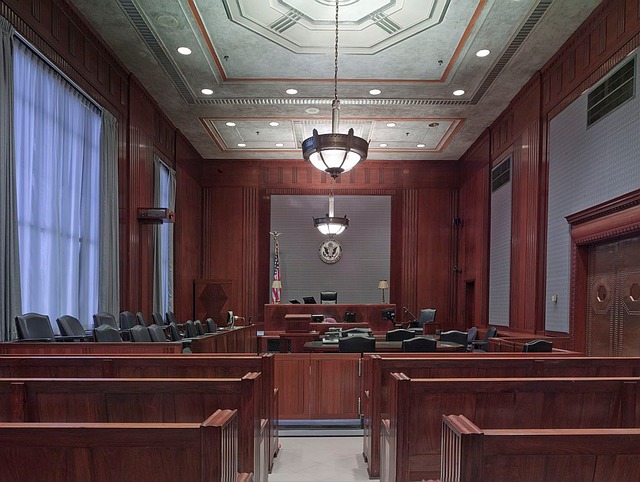Spinal cord injuries (SCIs), often caused by negligence like motor vehicle accidents or falls, lead to permanent paralysis and neurological deficits, impacting movement, sensation, and cognitive abilities below the point of injury. Immediate medical attention is crucial for long-term care and rehabilitation needs. When negligence causes an SCI, victims can consult a spinal cord injury lawyer to hold accountable parties responsible and secure compensation for physical and emotional suffering, including depression, anxiety, PTSD, high medical bills, reduced earning capacity, and ongoing care. A qualified lawyer navigates complex legal aspects, focusing on securing adequate compensation to cover healthcare needs, rehabilitation expenses, and modifications for daily living.
“Spinal cord injuries (SCIs) can have devastating effects, leading to both immediate and long-term physical and emotional damages. For individuals affected by SCIs, the journey towards recovery is often complex and demanding. This article explores the critical aspects of spinal cord injury lawsuits, focusing on understanding the causes and immediate impacts, recognizing the scope of emotional and physical damages, and navigating the legal complexities involved in compensating for long-term care and rehabilitation with the help of a specialized spinal cord injury lawyer.”
- Understanding Spinal Cord Injuries: Causes and Immediate Impact
- The Scope of Emotional and Physical Damages
- Navigating Legal Aspects: Compensating for Long-Term Care and Rehabilitation
Understanding Spinal Cord Injuries: Causes and Immediate Impact

Spinal cord injuries (SCIs) are a severe medical condition that can result from various incidents such as motor vehicle accidents, falls, or traumatic experiences. A spinal cord lawyer is often sought by individuals who have suffered these injuries to help navigate complex legal proceedings and secure compensation for their damages. Understanding the causes and immediate impacts of SCIs is crucial when pursuing a lawsuit.
The impact of a spinal cord injury can be life-altering, affecting movement, sensation, and even cognitive abilities below the point of injury. Depending on the severity and location of the damage, individuals may face permanent paralysis or neurological deficits. Immediate medical attention is critical to mitigate further damage; however, this initial phase also sets the stage for long-term care and rehabilitation needs. In cases involving negligence, such as contract disputes related to medical malpractice, insurance disputes over coverage, or nursing home abuse resulting in SCI, victims are entitled to seek legal recourse to hold responsible parties accountable and recover damages for both physical and emotional hardships.
The Scope of Emotional and Physical Damages

When a spinal cord injury occurs due to someone else’s negligence or reckless actions, it can have profound and far-reaching consequences for the victim. Emotional and physical damages are significant aspects that a spinal cord injury lawyer will consider when building a case. The scope of these damages extends beyond the initial medical treatments and includes long-term effects on an individual’s quality of life.
Victims may experience severe emotional trauma, such as depression, anxiety, and post-traumatic stress disorder (PTSD), which can be just as debilitating as the physical injuries themselves. Additionally, spinal cord injuries often lead to permanent physical limitations, impacting mobility, sensory functions, and overall independence. These damages can result in extensive medical bills, reduced earning capacity, and the need for ongoing rehabilitation or care, making employment disputes and auto accident injuries seem like minor inconveniences in comparison.
Navigating Legal Aspects: Compensating for Long-Term Care and Rehabilitation

Navigating the legal aspects of a spinal cord injury lawsuit involves complex considerations, especially when compensating for long-term care and rehabilitation. A qualified spinal cord injury lawyer understands that victims often face significant physical and emotional challenges that require extensive support. This includes medical treatments, therapy sessions, and adaptations to daily living.
In these cases, a successful legal strategy focuses on securing adequate compensation to cover ongoing healthcare needs, rehabilitation expenses, and any modifications required for independent living. This process may involve negotiations with insurance companies, including homeowner’s insurance claims or exploring potential nursing home abuse settlements if institutional care becomes necessary. A spinal cord injury lawyer can guide clients through these partnerships disagreements, ensuring they receive fair and just reimbursement for their long-term care requirements.
Spinal cord injuries can lead to severe physical and emotional damages, significantly impacting an individual’s quality of life. For those who have suffered such injuries due to someone else’s negligence, consulting with a qualified spinal cord injury lawyer is crucial. Understanding the legal aspects involved in compensating for long-term care, rehabilitation, and other related expenses is essential in navigating this challenging landscape. By seeking expert legal counsel, individuals can focus on their recovery while ensuring they receive fair and just compensation for their injuries and associated challenges.






